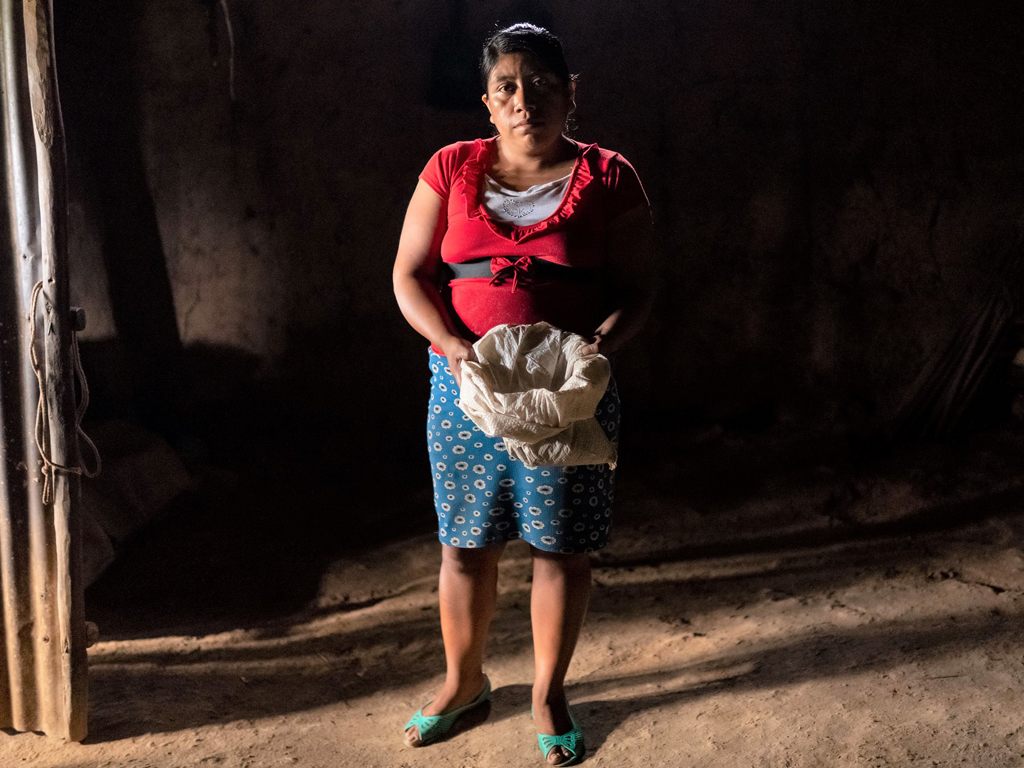Last year about this time, we wrote in this space that the Central American countries of El Salvador, Guatemala, and Honduras had two paths out of the pandemic. One path would use this pivotal moment to guarantee the rights and recognize the dignity of the most vulnerable. The other path, we suggested, would lead to greater authoritarian control by using the pandemic as an excuse for violating good governance, the rule of law, and democratic principles.
Based on early lockdowns and troubling rhetoric from leaders in the region that signaled a move toward the authoritarian path just weeks into the pandemic, we wrote:
It is no secret that politicians, especially those governing fragile democracies, often ignore democratic norms and the rights of the most vulnerable. The rhetoric they prefer, extolling their “noble” defense of the common good, both masks and authorizes a heavy-handed approach to security, which lends itself readily to state violence. Sadly, we see this pattern amplified in the severe response to the pandemic . . . Without [appropriate] civil society responses and government measures, democratic fragility, poverty, and inequality in the region will increase, and repression and forced displacement will continue or worsen.
Not surprisingly, elected officials in the region continued down the path of corruption and repression. And the pandemic is far from over in Central America: Guatemala and Honduras have the lowest vaccination rates in the hemisphere with the exception of Venezuela. Far from being a social equalizer, the pandemic has only aggravated the social, political, and economic inequalities in the region. For example, the longer schools and small businesses remain closed or limit access, the worse these inequalities will become. And the longer authoritarian leaders in the region keep a grip on their populations with restrictive public health and other measures, the less viable diplomatic engagement with the US and other countries can be.
Given all of this, we are now seeing the consequences of the unraveling of democracy in the region. In May 2021, for example, there were more apprehensions of migrants trying to cross the border into the United States than in any month since 2000.
A year of COVID-19 and corruption
The Central America Research Alliance at the Keough School’s Pulte Institute for Global Development commissioned reports to document government responses to the pandemic. Our partners in Guatemala and Honduras provided early warnings of trouble in their countries. In order to increase their own per diems, the Guatemalan congress pilfered the education budget, leaving children and youth without adequate remote-learning services. It then refused to swear in a corruption-fighting judge for her second term, and is now pushing to restrict civil society freedoms through a law that restricts funding for NGOs that seek transparency.
In Honduras, corruption cases related to the government’s COVID-19 response included $12 million in excess costs for new mobile clinics and inflated prices of medical supplies paid to businesses with government ties. In the US, a case against Honduran drug traffickers wound its way through the courts and publicly implicated the president of Honduras in accepting bribes in return for protection of cartels and their shipments in the country. The case erased any lingering doubt that Honduras has become a “corrupt narco-state.”
Perhaps the most systematic and worrying slide toward autocracy can be observed in El Salvador. A year ago, President Bukele was celebrating the close of his first year in office with an approval rating of over 90 percent. Earlier this year he successfully translated that popularity into a legislative assembly majority for his new political party. Bukele’s new mandate had the potential to be used to improve the social contract in El Salvador. He campaigned against the corruption of past leaders and their parties, and worked with the Organization of American States to establish the International Commission against Impunity in El Salvador (CICIES) within months of his inauguration.
As the pandemic gained force, however, Bukele’s lockdowns and mandates were met with constitutional challenges in the Supreme Court, where he was ultimately overruled. Investigations uncovered nepotism and misuse of resources in procurement practices for the government’s pandemic response. The attorney general and CICIES were investigating these claims as Bukele’s New Ideas party won a supermajority in the legislative assembly this spring. On the first day in session, the legislative assembly voted to remove and replace the attorney general and the constitutional chamber of the Supreme Court. All removals ran afoul of the legal processes established in the constitution to remove and replace these individuals. The day after his installation, the new attorney general began a review of the role of CICIES leading to its closure.
Declining democracy, increasing migration
The growing specter of authoritarianism in the region adds yet another factor to the already complex calculus of individuals deciding whether to stay or leave. The so-called “root causes” of migration from the region have traditionally included endemic violence, pervasive unemployment, and the hope for family reunification. However, these issues cannot be addressed in isolation. In our research, we found that persons with migration intentions name multiple reasons for wanting to migrate, among them violence, unemployment and reunification. But the primary reason named changes over relatively short periods of time (Rivero Fuentes and Hare, forthcoming).
In response to this complexity, we are studying how individuals envision the future for themselves and their families in their current community and country. This more holistic approach recognizes that policies and programs must work to create the conditions for individual flourishing that combat what our Central America Research Alliance members in the region have come to refer to as “structural hopelessness.” This hopelessness results from a lack of democratic norms and practices as well as inclusive social and economic models that would provide a “light at the end of the tunnel” for Central Americans.
Hopelessness and youth
In our forthcoming research, two-thirds of youth do not expect a secure and prosperous future in their home country. While related to migration intentions, this way of measuring people’s predicaments is different. Intention to migrate is impacted by having the money, connections, time or other resources to consider leaving. Seeing a good future in their home community or country is not mitigated by logistical questions. It means that two out of three youth do not see hope in their future.
Structural hopelessness is certainly affected by a lack of security and unemployment. However, an individual’s capacity to respond to these challenges also matters. For example, we found a correlation between the extent of an individual’s “resilience” (i.e., ability to marshal resources in order to cope with challenges), level of involvement in violence, and migration intentions (Rivero Fuentes, Miller-Graff, Hare, forthcoming). In other words, teaching someone skills for planning, managing stress, and dealing with adversity is no less important than providing jobs.
This means that some individuals may see migration as the only way to improve their situation and live with dignity—however they define that for themselves. For this group, the structural hopelessness that results from a lack of agency to do anything about the combination of the (in)security, (un)employment, and (bad) governance issues forces them to look elsewhere for a dignified existence. Meanwhile, those in their home country who have better access to the necessary individual, relational, and systemic supports that facilitate their well-being may have sufficient support to flourish despite adverse experiences such as corruption, victimization, or unemployment.
Where to go from here?
The tense relationship between the US and governments in the region will exacerbate inequalities that contribute to emigration from the region. In the meantime, research reports, policy recommendations, and news coverage on Central America are full of theories and ideas to address the typical “root causes” of migration. However, while the first two responses to “why did you migrate?” or “why do you plan to migrate?” are inevitably tangible issues like security and employment, we need to advance our thinking from these “proximate causes” to another level of root cause—dignity and agency.
Practically speaking, of all of the things the United States, regional governments, businesses, universities, and civil society can do, one of the most important is to continue to build resilience and confidence in governments. The first step is to work in solidarity alongside civil society in Central America and support efforts to provide youth with access to resources, and to improve transparency and accountability. Then, a long-term, quasi-international regional body to combat corruption should be instituted to ensure even greater accountability and rule of law. This measure would help to provide a light at the end of the tunnel of unchecked authoritarianism and repression. Only then can confidence be restored and dignity and agency flourish.
Clara Villatoro is a master of global affairs student at the University of Notre Dame’s Keough School of Global Affairs. She was formerly the Central America Regional Human Rights and Democracy Program Coordinator in the Pulte Institute for Global Development. A El Salvador native, Villatoro is a former journalist who covered breaking news in Central America on topics such as public health, environment, and economics.
Tom Hare is a senior associate at the Keough School’s Pulte Institute for Global Development. His research examines violence prevention policies, programs, and theories in Central America. Hare is the author of Zonas Peligrosas (Fordham University Press, 2018), and several articles that critically assess local and international development efforts in the region.
This article is part of a series of blog posts published by the Keough School of Global Affairs. Dignity and Development provides in-depth analysis of global challenges through the lens of integral human development.
Photo: Rose Elvira, member of a rural indigenous community in Guatemala. © European Union, 2020 (photographer: S. Billy).



